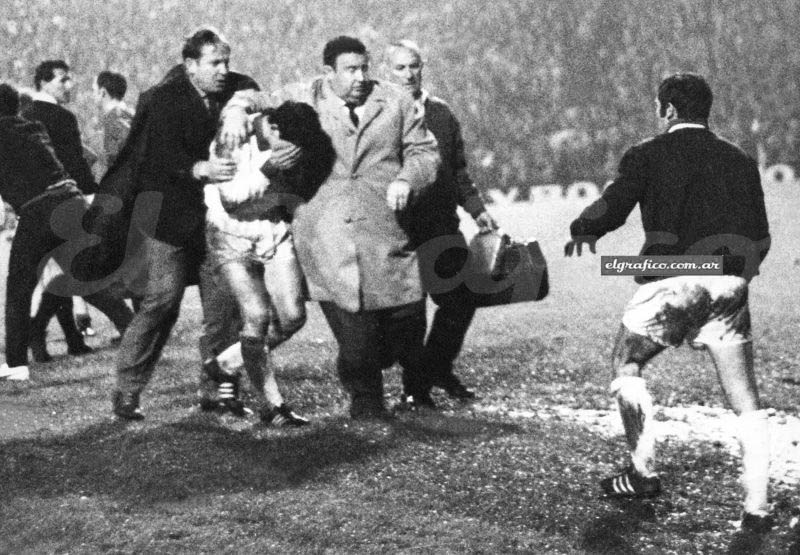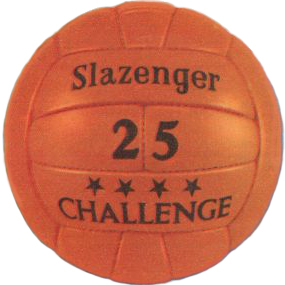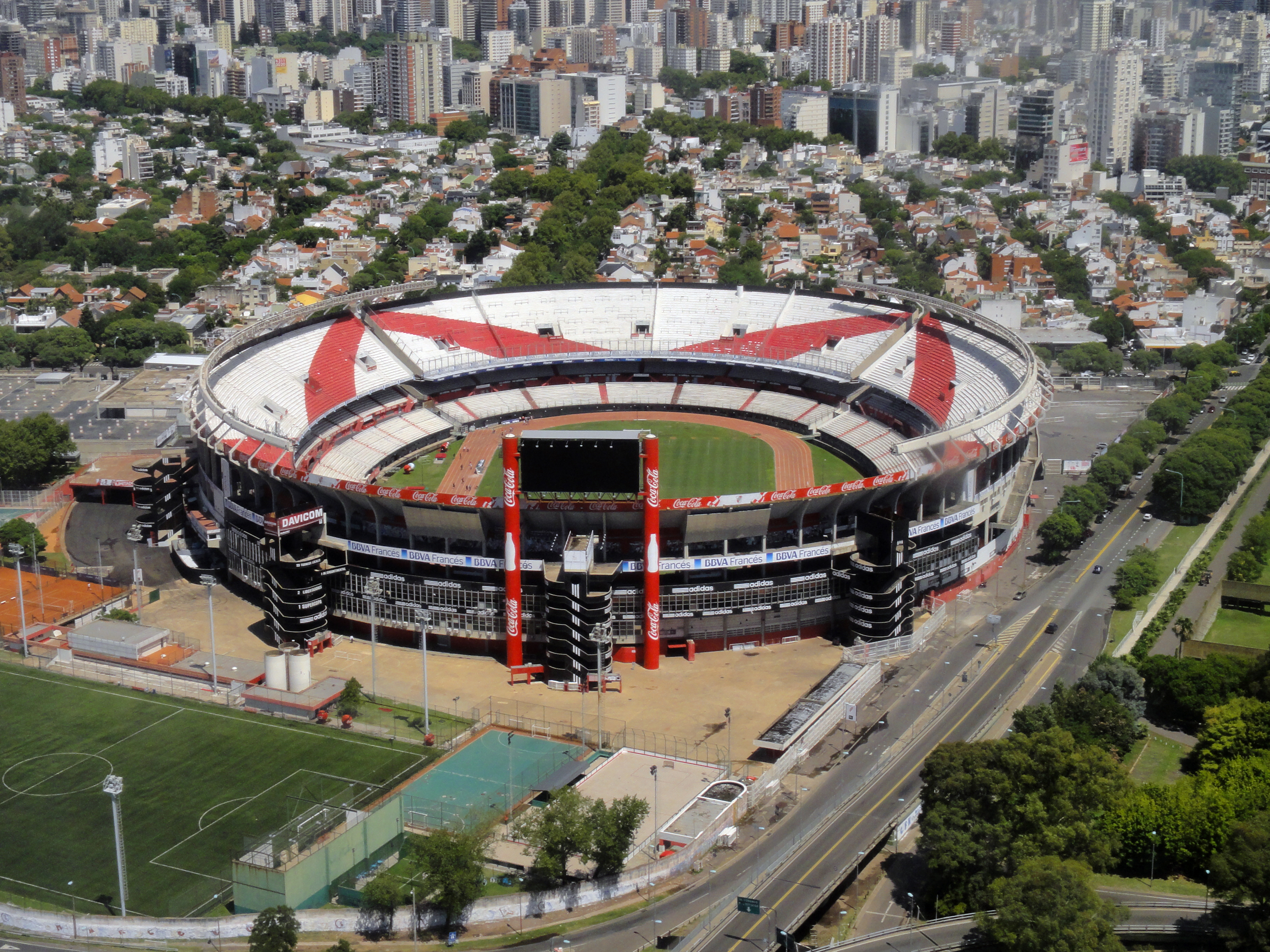|
1968 Intercontinental Cup
The 1968 Intercontinental Cup was an association football tie held over two legs in 1968 between the winners of the 1967–68 European Cup, Manchester United, and Estudiantes de La Plata, winners of the 1968 Copa Libertadores. The first leg was held on 25 September 1968 at the '' Estadio Boca Juniors'', as Estudiantes' ground was deemed unsuitable. Nevertheless, Estudiantes won the first leg 1–0, the winning goal awarded to Marcos Conigliaro in the 27th minute. Old Trafford hosted the return leg three weeks later on 16 October 1968. The match finished up as a 1–1 draw, granting Estudiantes their first Intercontinental Cup title. Juan Ramón Verón opened the scoring in the 6th minute, but Willie Morgan equalised in the 90th minute. Players were sent off in both legs of the tie, Nobby Stiles being dismissed for Manchester United in the 79th minute of the first leg. The second leg was marred by violence, and resulted in George Best and José Hugo Medina being sent off as a ... [...More Info...] [...Related Items...] OR: [Wikipedia] [Google] [Baidu] |
Intercontinental Cup (football)
The European/South American Cup, more commonly known as the Intercontinental Cup and from 1980 to 2004 as the Toyota European/South American Cup (abbreviated as Toyota Cup) for sponsorship reasons, was an international association football, football competition endorsed by UEFA (Europe) and CONMEBOL (South America), contested between representative clubs from these confederations (representatives of most developed continents in the football world), usually the winners of the UEFA Champions League and the South American Copa Libertadores. It ran from 1960 to 2004, when it was succeeded by the FIFA Club World Cup, FIFA Club World Championship, although they both ran concurrently in 2000. From its formation in 1960 to 1979, the competition was as a two-legged tie, with a playoff if necessary until 1968, and Penalty kick (association football), penalty kicks later. During the 1970s, European participation in the Intercontinental Cup became a running question due to controversial eve ... [...More Info...] [...Related Items...] OR: [Wikipedia] [Google] [Baidu] |
Juan Ramón Verón
Juan Ramón Verón (; born 17 March 1944) is an Argentine football coach and former professional player. He played as a midfielder or forward most notably for Estudiantes, where he won three consecutive Copa Libertadores titles. He is the father of former player Juan Sebastián Verón. Career Estudiantes Nicknamed ''La Bruja'' ( en, The Witch), Juan Ramón Verón was born in La Plata. He was capable of playing both as a midfielder and as a striker, and was renowned for his technical skills, ability with the ball at his feet and his goal-scoring prowess. He played for Estudiantes de La Plata, who were a dominant force in Argentine football during the late 1960s. Among the memorable goals he scored are his "bicycle kick" goal against Racing Club, his header in the Intercontinental Cup championship against Manchester United and, most famously, his glorious hat-trick against Brazil's Palmeiras in the finals of the 1968 Copa Libertadores. Later years Known as one of Estudiantes ... [...More Info...] [...Related Items...] OR: [Wikipedia] [Google] [Baidu] |
Carlos Bilardo
Carlos Salvador Bilardo Digiano (born 16 March 1938) is an Argentine former physician, football player, and manager. Bilardo achieved worldwide renown as a player with Estudiantes de La Plata in the 1960s, and as the manager of the Argentina side that won the 1986 FIFA World Cup and came close to retaining the title in 1990, where they reached the final. As manager of Argentina, he was renowned for successfully employing the 3–5–2 formation at the highest level; this formation has been in use for decades, but has never achieved mainstream status. He is known by fans and the media as ''el narigón'' ("the big nosed one"). Early life Bilardo was born in the Buenos Aires La Paternal neighbourhood to Sicilian immigrants from Mazzarino. He was drawn to football from his childhood, but did not neglect study or work. On school vacations, he would get up before dawn to haul produce to the Abasto market in Buenos Aires. Bilardo was a promising prospect in the youth divisio ... [...More Info...] [...Related Items...] OR: [Wikipedia] [Google] [Baidu] |
Alf Ramsey
Sir Alfred Ernest Ramsey (22 January 1920 – 28 April 1999) was an English football player and manager. As a player, he represented the England national team and captained the side, but he is best known for his time as England manager from 1963 to 1974, which included guiding them to victory in the 1966 FIFA World Cup. Knighted in 1967 in recognition of the World Cup win, Ramsey also managed his country to third place in the 1968 European Championship and the quarter-finals of the 1970 World Cup and the 1972 European Championship. As a player, Ramsey was a defender and a member of England's 1950 World Cup squad. Ramsey was born and raised in a quiet Essex village. He showed sporting promise from an early age and, after serving in the British Army during the Second World War, embarked on a football career, primarily as a right-back. He was considered a rather slow but accomplished player with a tremendous grasp of the tactical side of the game. Nicknamed "The General", ... [...More Info...] [...Related Items...] OR: [Wikipedia] [Google] [Baidu] |
1966 FIFA World Cup
The 1966 FIFA World Cup was the eighth FIFA World Cup, a quadrennial football tournament for men's senior national teams. It was played in England from 11 July to 30 July 1966. The England national football team defeated West Germany 4-2 in the final to win the tournament. The final had finished at 2–2 after 90 minutes and went to extra time, when Geoff Hurst scored two goals to complete his hat-trick, the first (and , only) to be scored in a men's World Cup final. England were the fifth nation to win the event, and the third host nation to win after Uruguay in 1930 and Italy in 1934. Brazil were the defending champions, but they failed to progress from the group stage. Two debut teams performed well at the competition – North Korea beat Italy 1–0 on the way to reaching the quarter-finals, where they lost to Portugal 5–3 after leading 3–0. Portugal themselves finished third, losing 2–1 to England in the semi-final. Portuguese striker Eusébio was the tournament's t ... [...More Info...] [...Related Items...] OR: [Wikipedia] [Google] [Baidu] |
Argentina National Football Team
The Argentina national football team represents Argentina in men's international football and is administered by the Argentine Football Association, the governing body for football in Argentina. Nicknamed ''La Albiceleste'' ('The White and Sky Blue'), they are the reigning world champions, having won the most recent World Cup in 2022. Overall, Argentina has appeared in a World Cup final six times; a record surpassed only by Brazil and Germany; Argentina played in the first ever final in 1930, which they lost 4–2 to their South American rival Uruguay. Argentina's next final appearance came 48 years later, in 1978, when the team captained by Daniel Passarella defeated the Netherlands 3–1 in extra time, being crowned world champions for the first time. Captained by Diego Maradona, Argentina won their second World Cup eight years later, in 1986, with a 3–2 final victory over West Germany. They reached the final once more under the guidance of Maradona, in 1990, but were ... [...More Info...] [...Related Items...] OR: [Wikipedia] [Google] [Baidu] |
Otto Glória
Otto Martins Glória (9 January 1917 – 4 September 1986) was a Brazilian football coach. Career Glória was born in Rio de Janeiro, Brazil, but had his greatest successes with Benfica in Portugal, guiding the club to nine national trophies. With the Nigeria national team he won the 1980 African Cup of Nations. In his first period with Benfica, the club was transformed to professional standards. Supported by president Joaquim Ferreira Bogalho, Glória founded a home for the players and focused on recruiting players from the periphery of the Portuguese capital and also from the African overseas provinces. In these years between 1954 and 1959 the club won two leagues and three Portuguese Cup. In February 1962 he took on the reins of Olympique Marseille. The club was then stuck in the second division and saw its aspirations to return to the first division endangered. In his four months with the club he did not lose a single match and achieved its objective. In his second ten ... [...More Info...] [...Related Items...] OR: [Wikipedia] [Google] [Baidu] |
Racing Club De Avellaneda
Racing Club de Avellaneda, officially known as Racing Club or shortened to just Racing, is an Argentine professional sports club based in Avellaneda, a city of the Buenos Aires Province. Founded in 1903, Racing has been historically considered one of the "big five" clubs of Argentine football, and is also known as "El Primer Grande" (The first big club), for becoming the first club in the world to win seven league titles in a row, first Argentine club to win a national cup, and the first world champion (Intercontinental Cup) Argentine club. Racing currently plays in the Primera División, the top division of the Argentine league system, and plays its home games at Estadio Presidente Perón, nicknamed ''El Cilindro de Avellaneda'' (in English: "The Cylinder of Avellaneda"). Racing has won the Primera División 18 times, with a record of seven consecutive championships between 1913 and 1919, five of which were won undefeated. [...More Info...] [...Related Items...] OR: [Wikipedia] [Google] [Baidu] |
Celtic F
Celtic, Celtics or Keltic may refer to: Language and ethnicity *pertaining to Celts, a collection of Indo-European peoples in Europe and Anatolia **Celts (modern) *Celtic languages **Proto-Celtic language * Celtic music *Celtic nations Sports Football clubs *Celtic F.C., a Scottish professional football club based in Glasgow ** Celtic F.C. Women * Bangor Celtic F.C., Northern Irish, defunct * Belfast Celtic F.C., Northern Irish, defunct *Blantyre Celtic F.C., Scottish, defunct *Bloemfontein Celtic F.C., South African *Castlebar Celtic F.C., Irish *Celtic F.C. (Jersey City), United States, defunct * Celtic FC America, from Houston, Texas * Celtic Nation F.C., English, defunct *Cleator Moor Celtic F.C., English *Cork Celtic F.C., Irish, defunct * Cwmbran Celtic F.C., Welsh * Derry Celtic F.C., Irish, defunct *Donegal Celtic F.C., Northern Irish *Dungiven Celtic F.C., Northern Irish, defunct * Farsley Celtic F.C., English *Leicester Celtic A.F.C., Irish *Lurgan Celtic F.C., Northern ... [...More Info...] [...Related Items...] OR: [Wikipedia] [Google] [Baidu] |
Boca Juniors And Sao Paulo - Recopa Sudamericana Of 2006 - 01
Boca or BOCA may refer to: Entertainment *''Boca'', a 1994 film starring Rae Dawn Chong * ''Boca'' (2010 film), a 2010 Brazilian film * "Boca" (''The Sopranos'' episode), a 1999 episode of the American television series ''The Sopranos'' *"Boca", a song by Dreamcatcher from ''Dystopia Lose Myself'' (2020) Locations *La Boca, a neighbourhood of Buenos Aires, Argentina **La Boca Formation, a geological formation in Mexico * Boca, California, a former settlement *Boca, a village in Samarinești Commune, Gorj County, Romania *Boca Chica, a municipality of the Santo Domingo province in the Dominican Republic ** Boca Chica Key, an island in the lower Florida Keys **Boca Chica (other), several places *Boca, Novara, a municipality in the Province of Novara, Italy *Boca Del Mar, Florida, a census-designated place in Palm Beach County, Florida * Boca del Río, Veracruz, a city in the Mexican state of Veracruz * Boca Grande, Florida, a town on Gasparilla Island, Florida *Boca grande ... [...More Info...] [...Related Items...] OR: [Wikipedia] [Google] [Baidu] |
José Hugo Medina
José is a predominantly Spanish and Portuguese form of the given name Joseph. While spelled alike, this name is pronounced differently in each language: Spanish ; Portuguese (or ). In French, the name ''José'', pronounced , is an old vernacular form of Joseph, which is also in current usage as a given name. José is also commonly used as part of masculine name composites, such as José Manuel, José Maria or Antonio José, and also in female name composites like Maria José or Marie-José. The feminine written form is ''Josée'' as in French. In Netherlandic Dutch, however, ''José'' is a feminine given name and is pronounced ; it may occur as part of name composites like Marie-José or as a feminine first name in its own right; it can also be short for the name ''Josina'' and even a Dutch hypocorism of the name ''Johanna''. In England, Jose is originally a Romano-Celtic surname, and people with this family name can usually be found in, or traced to, the English county of C ... [...More Info...] [...Related Items...] OR: [Wikipedia] [Google] [Baidu] |






